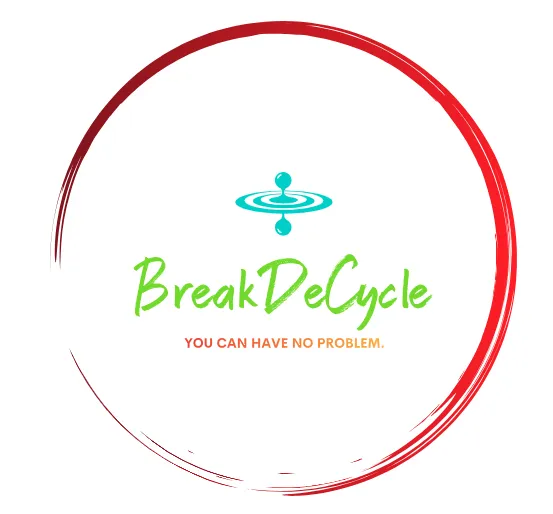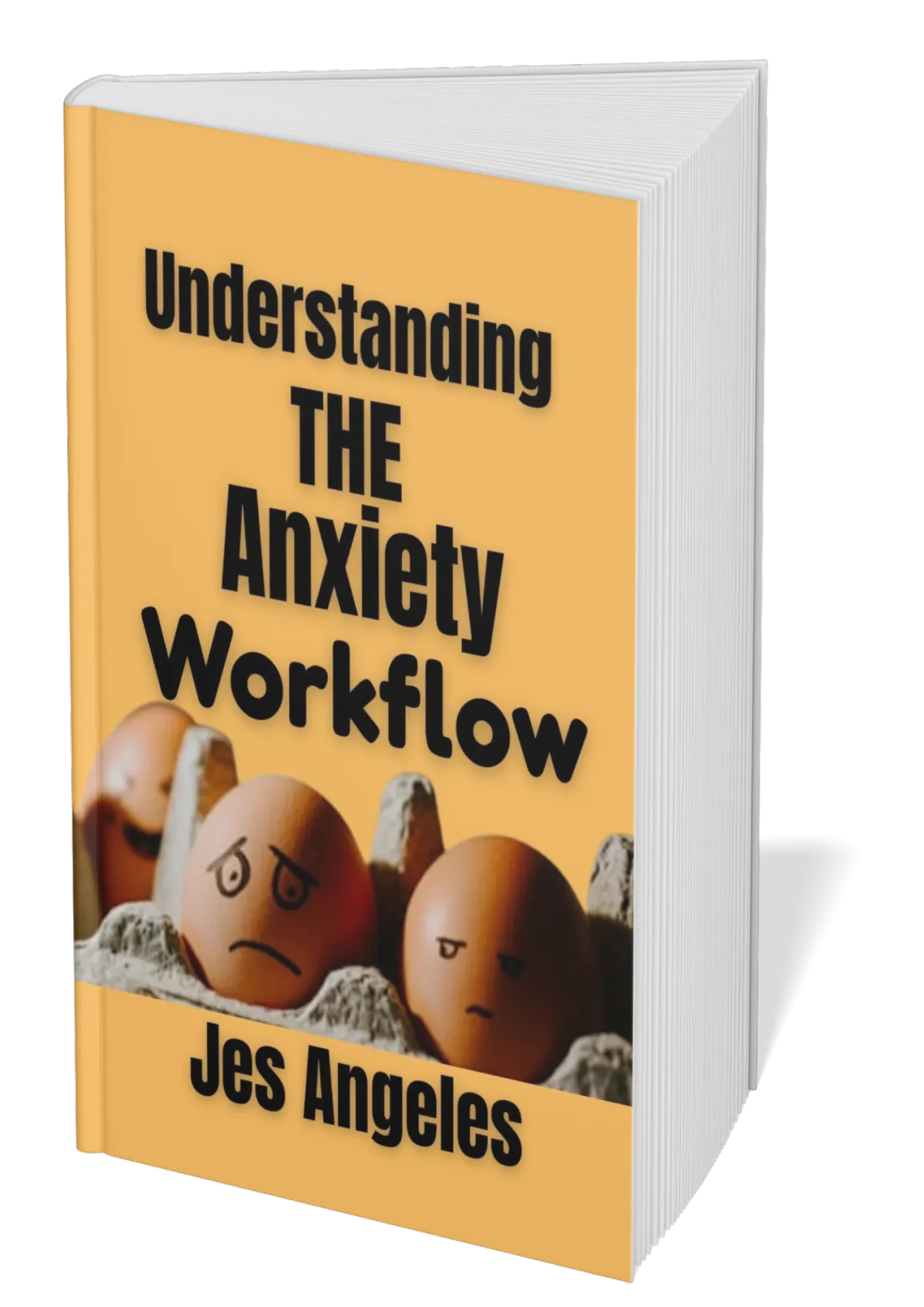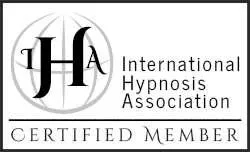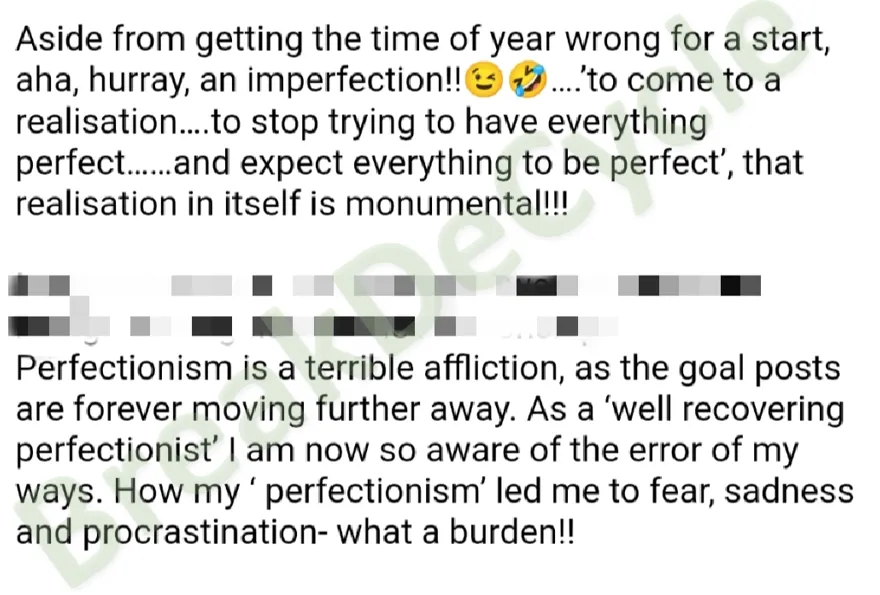
Certified Hypnotherapist,
NLP Master, MBCT, SFBT, MCT & SBHt Practitioner
How to END Trama-related Chronic Procrastination
with X-Ray Clarity
in Possible 90 Minutes
Without Multiple sessions, High Package Costs &
High Effort Self-Management Techniques
Video is playing. Unmute to watch.
(You may enlarge the screen for better viewing experiences.)
Procrastination isn't being lazy.
It's a tricky routine filled with anxiety.
How often do feel the temptation to set everything aside and give in to distractions, like scrolling through social media, packing your table, or doing anything else but the task at hand? And just being aware of the potential negative consequences of this action can be overwhelming.
It's a journey we all get to share. The familiar wave of anxiety is something many of us have experienced, especially in today's pressure cooker of a high-stress environment. It's a normal part of the human experience, but it's not harmless. What starts as occasional unease can spiral into a full-blown Chronic Issue, sabotaging your career, opportunities, and contentment.
The consequences are serious, but you're not alone in this struggle.
Many people see Procrastination as laziness, but NO that's a misconception.
Procrastination is your mind's way of coping with Stress, Anxiety, and Fear.
Procrastination is an Emotion-Regulating Problem.
Research has shown that childhood experiences, particularly traumatic ones, can have a lasting impact on emotional regulation.
These traumatic experiences embedded subconsciously in the child while growing up causing them to develop maladaptive coping strategies to manage their emotions as they mature.
For adults, procrastination often serves as a temporary refuge from the anxiety associated with expectations and performance, subconsciously linking these tasks to previous negative emotions and thus reinforcing a pattern of avoidance.
The causes of procrastination are complex and varied but often involve challenges with executive functioning of emotional regulation.
Some other research also suggests that procrastination may also be used as
a coping mechanism for individuals with ADHD (attention deficit hyperactivity disorder) which could have also developed due to past traumatic experiences.
When faced with a task, emotions like pressure and fear of failure, and high standards can overwhelm them, causing their brain to hit the brakes.
This anxiety doesn’t mean they don’t want to get things done.
It’s their mind trying to protect them from perceived threats, such as making mistakes or feeling inadequate.
However, this protective mechanism can backfire, trapping them in a cycle of delay and self-criticism.
But what if there is a way to overcome this in possible 90 minutes?
Yes, a mere 90 minutes
To discover if your procrastination is linked to past trauma?
Free Test available below.
What Some Clients Says
"I can’t say more how amazing to get clarity to my problems after searching for the answers for over a decade in just 1 session with you. What a relief that I can finally put an end to this. Yes! Break de cycle! Thank you so much Jes, you are a great therapist!"
Susan, California
"To be honest, you are not the only therapist that I have ever worked with, but I must say your session has the most impactful effect on me. I have gotten a lot more clarity on the issue and could also feel the inner shift within me after only one session with you. I believe your method is working."
Anita, Perth Australia
"I have been really independent all of my life, having the 'great belief' that I can solve everything by myself and realize just how much I have suffered for this. I am really glad that I make the decision to get your help. Thank you for helping me to make things a lot easier now. Jes you are a godsend blessing to me, and please continue to bless others with your amazing work. All the best to you and all that get to meet you soon!"
Elena, Auckland New Zealand

Jes Angeles
Founder & Principal Therapist of
the Break De Cycle Method
Meet Jes Angeles
Hi, I’m Jes Angeles—a Certified Hypnotherapist, NLP Master, and accredited practitioner in MBCT, SFBT, MCT, SBHt, and more. With a Dp MA in Psychology and extensive training across Hypnotherapy, NLP, Mindfulness-Based Cognitive Therapy, and Solution-Focused Brief Therapy, I bring a multidisciplinary approach to mental wellness and performance.
I’m also a published author and proud member of both the International Hypnosis Association and the Complementary Therapists Accredited Association.
What I Do
I help professionals and entrepreneurs break free from mental roadblocks—especially Chronic Procrastination—by guiding them toward clarity, motivation, and momentum. My signature Break De Cycle Method empowers clients to overcome inertia and achieve their goals swiftly and sustainably—without relying on brute-force willpower or endless internal battles.
But that’s just the beginning.
Once mental clutter is cleared, I will introduce another powerful shift: a counterintuitive framework that reframes delay as a tactical advantage, embedding it into the subconscious as a tool for focus, creativity, and momentum.
Clients stop fighting procrastination
— and start using it as fuel.
Are you Still living in the Echoes of the Past?
Start Understanding How Childhood Wounds Can Fuel Procrastination
The Biological Angle of Trama
Trauma isn't just psychological; it has a biological side too. It can change the way the brain is structured and how it works, especially in parts that deal with stress and self-control. These neurobiological changes from trauma can make it tough for someone to organize and carry out tasks, which can lead to even more procrastination.
The Brain’s Role in Procrastination
Procrastination is deeply rooted in the brain, particularly in how different areas that manage our emotions, decision-making, and self-control interact. The prefrontal cortex is key for planning and resisting impulsive actions, and it's vital for making choices that need us to think ahead and exercise restraint. But when we're up against tasks that seem overwhelming or just plain boring, our brain's limbic system kicks in, driving us towards instant rewards rather than long-term achievements. Studies indicate that expecting a stressful or dull task can light up the amygdala, the part of the brain that handles emotions like fear and worry. This can set off a fight-or-flight reaction, making us dodge the task. As a result, we're drawn to activities that give us a quick hit of pleasure, like binge-watching or endless scrolling. This internal conflict is what often leads to procrastination.
Neurotransmitters and Motivation
Dopamine, the neurotransmitter that regulates motivation and reward, plays a key role in procrastination. When we finish a task and feel accomplished, dopamine is released, which encourages repeat behavior. But when a task is daunting or lacks instant gratification, our brains might not produce enough dopamine to push us to act. This can cause us to procrastinate, as we look for other activities that give us that dopamine hit, sometimes to our disadvantage.
Some research indicates that people with naturally lower levels of dopamine might be more inclined to procrastinate. Their brains don't signal as much excitement or reward for completing challenging tasks, which can lead to them shying away from such tasks. Knowing about this biological tendency can help individuals devise better strategies to boost their motivation.
The Impact of Stress and Anxiety
Stress and anxiety also play significant roles in procrastination and its biological underpinnings. Elevated stress levels can lead to higher cortisol production, which may impact cognitive function and emotional processing. The combination of stress-induced cognitive overload and the brain’s inclination to avoid negative feelings can create a cycle where procrastination becomes the default coping mechanism. Over time, this cycle can further exacerbate anxiety, leading to chronic procrastination.
Moreover, biological variations in how individuals experience stress, and anxiety can impact their propensity to procrastinate. Those with anxiety disorders may be more likely to avoid tasks due to heightened emotional responses, indicating that the biological angle of procrastination is not a one-size-fits-all scenario.

The Link Between Trauma and Procrastination
Trauma can profoundly affect an individual's thinking and coping abilities. Unresolved trauma may increase stress vulnerability and lead to unhelpful coping methods such as procrastination.
Here's how trauma can contribute to procrastination:
Loss of control from trauma: Traumatic events occur without warning, shaking one's sense of security and self-determination. Procrastination can be an unhealthy way to reclaim control by choosing to delay tasks.
Self-esteem and trauma: Those who have experienced trauma may struggle with feelings of guilt and shame. Delaying tasks can temporarily protect self-esteem by sidestepping possible failure or criticism, despite potentially triggering self-critical thoughts.
Trust issues from trauma: Trauma can make survivors distrustful of the world and others, causing hesitation to commit to plans until every detail is assuredly in place, leading to postponement.
Fear response to trauma: Traumatic memories can trigger a fight-or-flight response even in safe situations. This constant alertness and reluctance to engage can drain mental energy, leading to task avoidance. Motivation and trauma: Trauma can result in a sense of helplessness, where efforts seem futile. This can reduce the drive to act, making procrastination seem like a safer option than investing effort in potentially unrewarding tasks.
Emotional regulation and trauma: Trauma often brings intense negative emotions. Procrastination can offer a brief respite from confronting these difficult emotions that certain tasks might bring up. While occasional procrastination is common, for trauma survivors, it can become a chronic coping strategy, offering a way to avoid and numb feelings that seem overwhelming.

The Impact of Childhood Trauma on Procrastination
Childhood trauma can significantly affect an individual's tendency to procrastinate, as the emotional wounds and coping strategies formed during those early years often result in avoidance behaviors later in life.
Childhood trauma includes various adverse experiences such as physical, emotional, or sexual abuse, neglect, family dysfunction, or witnessing violence. These experiences can interrupt a child's development, leading to enduring psychological impacts. Trauma can affect a child's ability to regulate emotions, self-worth, and cognitive functions.
Experiencing trauma in the formative years can establish a base of fear, anxiety, and mistrust in one's surroundings, which can lead to harmful coping mechanisms in adulthood. These mechanisms can foster a habit of chronic procrastination.
A primary consequence of childhood trauma on procrastination is the emergence of a fear of failure. Traumatized individuals may develop perfectionism as a defense strategy, believing that perfection will prevent further distress. This fear of not achieving perfection can immobilize them, causing delays in action due to the dread of not meeting their own stringent standards.

The Hidden Costs of Trauma-Related Procrastination
While procrastination gives temporary relief for trauma survivors, it comes at large costs to well-being, relationships and goals in the long run:
It maintains trauma-activated stress states instead of managing them.
It harms self-esteem more by creating self-criticism for lack of progress.
Financial costs arise from rushed, inefficient work needing fixes or resubmissions.
Interpersonal conflict increases as commitments go unmet.
Loneliness grows as free time gets wasted, limiting social activity.
Health issues emerge from chronic stress without outlets.
Education and career goals face setbacks or even become unattainable.
Severe, unresolved trauma-related procrastination is thus ultimately more disempowering than the tasks it aims to avoid. It proves a maladaptive way of coping that maintains trauma effects instead of overcoming them.

How did I start my therapy journey.
Like many of you, I was once a professional in the corporate world, working hard, climbing the corporate ladder, and consuming stress like everyone else. Everything felt "normal" to me until the wake-up call came when my immune system began to malfunction. I started feeling tired no matter how many hours I tried to sleep, experienced frequent flu and colds, and then insomnia kicked in, followed by eczema that only seemed to appear at night, causing the itch that kept me up all night. I can’t even imagine how many pills I had to take back then just to get some proper sleep. I initially thought the problem stemmed from my environment, so I changed it. From one company to another, yet nothing worked; the cycle continued, and the changes I made didn’t seem to make any difference at the end of the day. I felt stuck, frustrated, and lost.
The pain from this cycle not only hurt me physically and mentally but also hindered my professional development, leading to opportunity and financial losses. I didn’t know what to do about it back then, but I knew I needed to take action. I started researching on stress management and tried various self-help techniques, which worked somewhat, but nothing lasted long enough. I realized I needed something deeper than surface-level solutions. It was probably the right time for me to break the cycle, and the turning point came when I learned about how the mind works and the benefits of therapy.
After receiving the benefits myself, I started helping people deal with stress using some therapy techniques that I have learned. And after receiving tons of positive feedback, I was motivated to dive even deeper with the goal of achieving time-efficient breakthroughs with my therapy techniques and strategies. In the process, I meet more and more people with similar problems and have seen countless professionals and entrepreneurs struggling with a symptom that seems harmless but is actually dangerous—Chronic Procrastination.
As a professional and entrepreneur, myself, I know how frustrating this can be and how urgent it is to achieve fast and effective breakthroughs, which is why I created the Break De Cycle Method.
My Target Mission:
To help you unleash your power within and shatter the chains of frustration with my exclusive Break De Cycle Method. Tailored for Professionals and Entrepreneurs like us, this cutting-edge approach zeroes in on the heart of disruptive behaviors, allowing you to swiftly reclaim the reins of your life in the shortest possible time.
As a therapist with a rich mosaic of training, I've harnessed a blend of therapeutic strategies to forge the revolutionary Break De Cycle Method. Dive deep into the subconscious mind, where the seeds of transformation are planted—yielding rapid, lasting change.
Why is it tough by using sheer Willpower for Change?
Knowing the problem isn't enough; it won't magically fix things, but leaving you trapped in endless thinking or talking with no progress. Think about it: why crash diets usually fail, and quitting smoking often turns into a long struggle. That's because willpower alone can't drive lasting change.
Why does Transformation need to bloom from within.
Those who triumph in weight loss weave their new habits into the fabric of their lives, no thought required. Ex-smokers don't just quit—but redefine themselves, breaking free from the shackles of past identity.
So rather than just fixing the problem, the Break De Cycle method aims to help you shape a new you at the core, creating lasting change.
The hidden roots of our dilemmas lie deep in the unconscious,
dictating our snap reactions and raw emotions.
A past trauma may ambush the present without warning; feelings of inadequacy may surge silently from within. Your unconscious is the backstage director of your beliefs, emotions, and life-sustaining functions.
Embark on a journey to the core. Dive deep.
Real change happens when you navigate the undercurrents of your unconscious essence.
Here lies the key to unshackling fears and reshaping behaviors.
Aiming for the source, to create long lasting transformation.
Using the Break De Cycle method, I assist my clients to tap into their subconscious to tackle fear, stress, and anxiety. Guiding them to breaking free from the invisible chains of their ingrained beliefs and autopilot disruptive behaviors.
Through this process, I facilitate the reprogramming of their subconscious mind, that creates new neural pathways that promotes a more positive and resilient response to stressful situations and making changes in their future action.
Break De Cycle is a quick route to your free mind. End the cycle of continuous multiple sessions and high package costs. Welcome a simple way to control stress and maintain lasting results.
Have you ever thought about
what life would be like to
End your frustration with Chronic Procrastination SOMEDAY?
And what if You have the choice to Turn SOMEDAY into DAY 1 now?
To make things easier, I want to offer you a FREE 1 on 1,
"How to END Chronic Procrastination ASAP" Session call
that will show you how you can achieve empowerment with Xray-Vision to eliminate the blockage of your uncontrolled discomfort and anguish in the Shortest Possible Time.
However as 1 on 1 is time-intensive, this offer is only by application approval.
Our team will review your application and reach out if your application has been approved.
Want to know if your Procrastination is caused by Past Trama?
Assess your Relationship with Procrastination
and begin to understand your Emotional Coping Mechanisms.
If you are still here reading on, you are now probability finding yourself facing a "Cross Path." right now.
Before you are two possible paths to choose from.

Let’s take a moment to “time travel” and explore the future that each one may hold.
Option # 1:
In this scenario, you opt to take no action. At first glance, this option might seem like the easiest choice, at least in the short run. No additional decisions are required from you. You continue on your path while I continue on mine.
The issue, however, is that you arrived at this point for a reason. What you were doing previously wasn't benefiting you. So, if you persist with the same methods that aren't working for you, where will that lead you?
The answer is nowhere new.
You will find yourself continue to be trapped in the same struggles, frustrations, and limitations. Nothing will change.
Eventually, there may come a day when your troubles become overwhelming, and you wish you had tried a different option back then, realizing just how much time and opportunities you’ve lost due to this choice.
In simpler terms, option #1 is actually a long and difficult route to reach your goals, or rather not a genuine choice at all.
Option #2:
In this scenario, you take the opportunity to make a change and explore the other options available to help you achieve empowerment and see clearly what’s blocking you—the uncontrolled discomfort and distress caused by chronic procrastination.
What could you gain?
You could acquire the extension of clarity and action necessary to eliminate your chronic procrastination in the shortest time possible.
You could learn how to break the cycle of discomfort and distress stemming from a deeply rooted emotional regulation problem that often goes unnoticed.
By doing so, you can elevate your timeline to the highest possible path.
And best of all, this "How to END Procrastination ASAP" Session is completely free, meaning you have very little to lose.
Stop Downsizing your Dreams.
Craving a clearer vision for your project's future?
Dive in now!
Built from old fears and unexamined habits, it becomes the silent architect of how we live.

Want a FREE copy of
"The Anxiety Workflow" eBook?
Enter your Email Address so we know where to send the eBook to.
By submitting this form, I authorize, agree, and consent to be contacted for products and services offers purposes in accordance with the Personal Data Protection Act 2012 and our data protection policy. I am aware that I may withdraw my consent provided by me any time by submitting my request to
"support@breakdecycle.com"



Copyright ©2023 breakdecycle.com — All Rights Reserve
Privacy Policy | Terms and Conditions
NOT FACEBOOK™: This site is not a part of the Facebook™ website or Facebook Inc.
Additionally, This site is NOT endorsed by Facebook™ in any way. FACEBOOK™ is a trademark of FACEBOOK™, Inc.
* Earnings and income representations made by the therapist/practitioner Jeslin Angeles Chen also known as Jes Angeles, and their advertisers/sponsors (collectively, "breakdecycle.com") are aspirational statements only of your earnings potential. These results are not typical, and results will vary.
The results on this page are OUR results from years of testing. We can in NO way guarantee you will get similar results.
By breakdecycle.com


